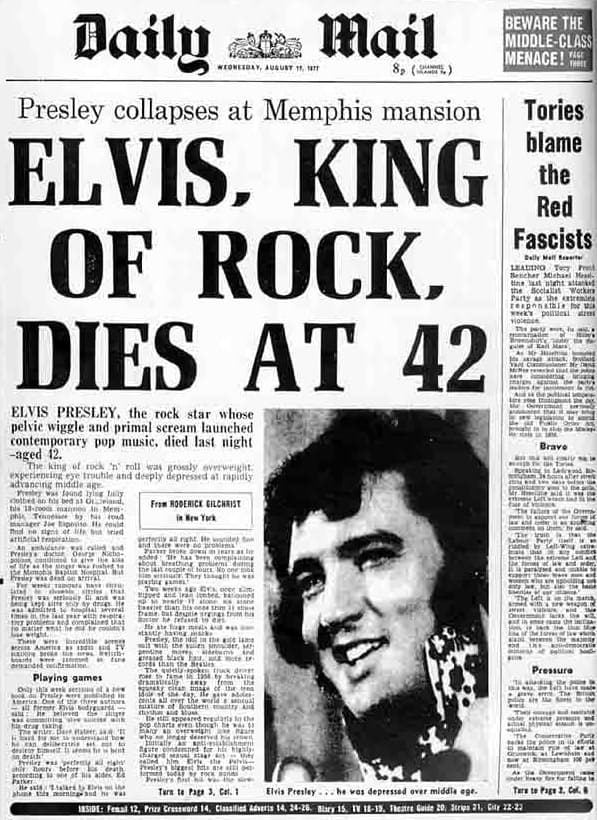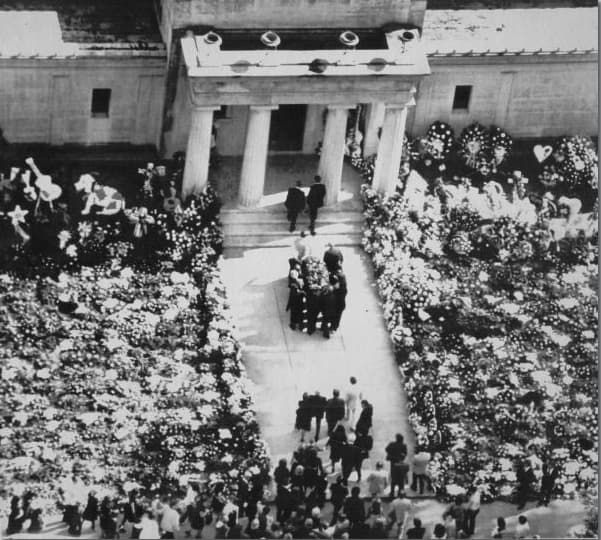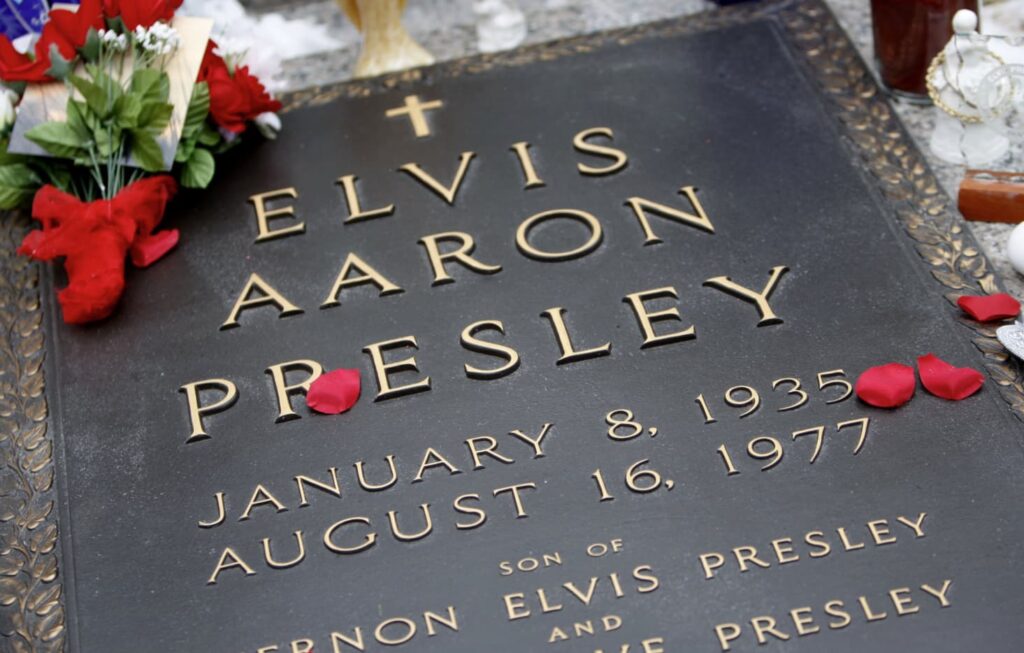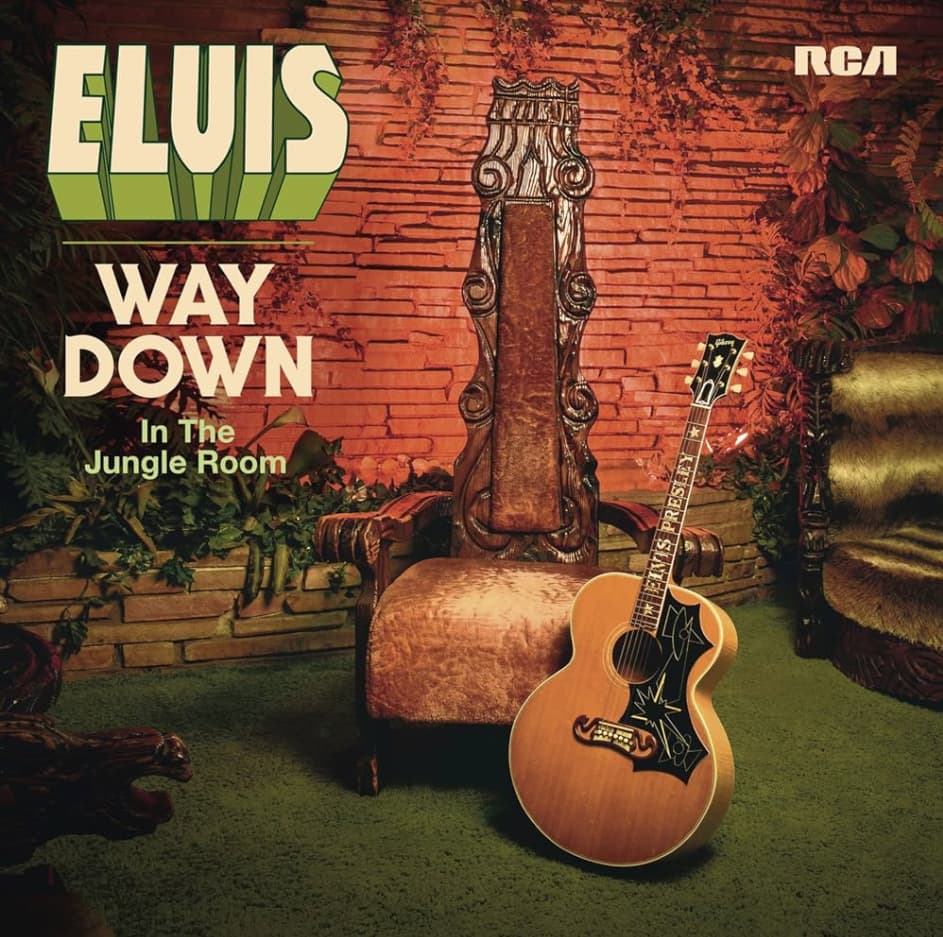
On August 16, 1977, the world awoke to the unthinkable. Elvis Presley, the man who had redefined American music and earned the crown as the King of Rock & Roll, was gone at just 42 years old. His sudden passing at Graceland, the Memphis mansion he called home, sent shockwaves across the globe.
That morning, Elvis was scheduled to fly from Memphis to Portland, Maine, to begin yet another tour. Fans were already waiting, tickets in hand, anticipating the electrifying voice and presence that had captivated them for two decades. But only hours before the flight, Elvis was found unresponsive in his bathroom. Despite desperate efforts at Baptist Memorial Hospital, it was too late.
The news broke swiftly. A local Memphis radio station was the first to announce Elvis’s death, and within minutes, telephones at both the hospital and Graceland were overwhelmed. National television interrupted regular programming to deliver the devastating bulletin. When CBS anchor Walter Cronkite told the nation, millions fell into stunned silence.

Almost instantly, Memphis became the epicenter of grief. Within 24 hours, more than 80,000 mourners crowded into the city, standing shoulder to shoulder along Elvis Presley Boulevard, hoping to catch one last glimpse of their idol or simply to be near Graceland. Police and city officials were overwhelmed, describing the scene as unlike anything Memphis had ever seen.

On August 18, 1977, Elvis’s funeral was held at Graceland. His casket was carried through the streets as thousands lined the route, some openly weeping, others simply holding hands in silence. It was not just the farewell of a superstar—it was the farewell of a cultural phenomenon.
Ironically, Elvis’s latest single, “Way Down,” released only weeks before his passing, soared to #1 on the Billboard Country Chart and reached the top of the UK charts. The song became more than a hit; it was a haunting reminder of the voice that had been silenced far too soon.

In the days that followed, one journalist captured the sentiment felt around the world:
“Elvis Presley is dead, but Elvis the legend has just been born.”
Indeed, Elvis’s death did not end his story—it transformed it. From that day forward, he was no longer just a performer, but a symbol. His music continued to echo through jukeboxes, radios, and living rooms, comforting those who felt they had lost not just an artist, but a piece of their own lives.
Decades later, we still remember where we were when we heard the news. August 16, 1977, remains a day when time seemed to stop, when the world lost its King—but gained an everlasting legend.